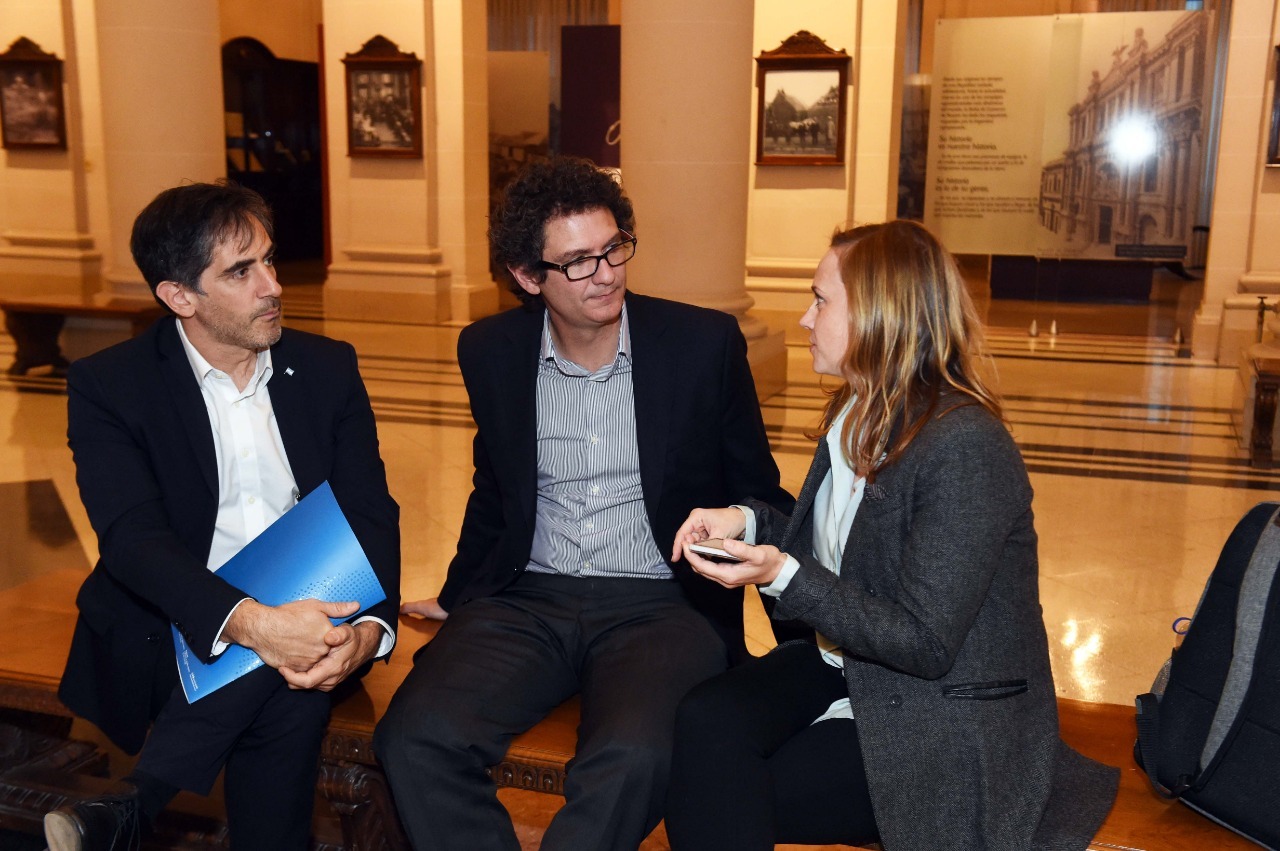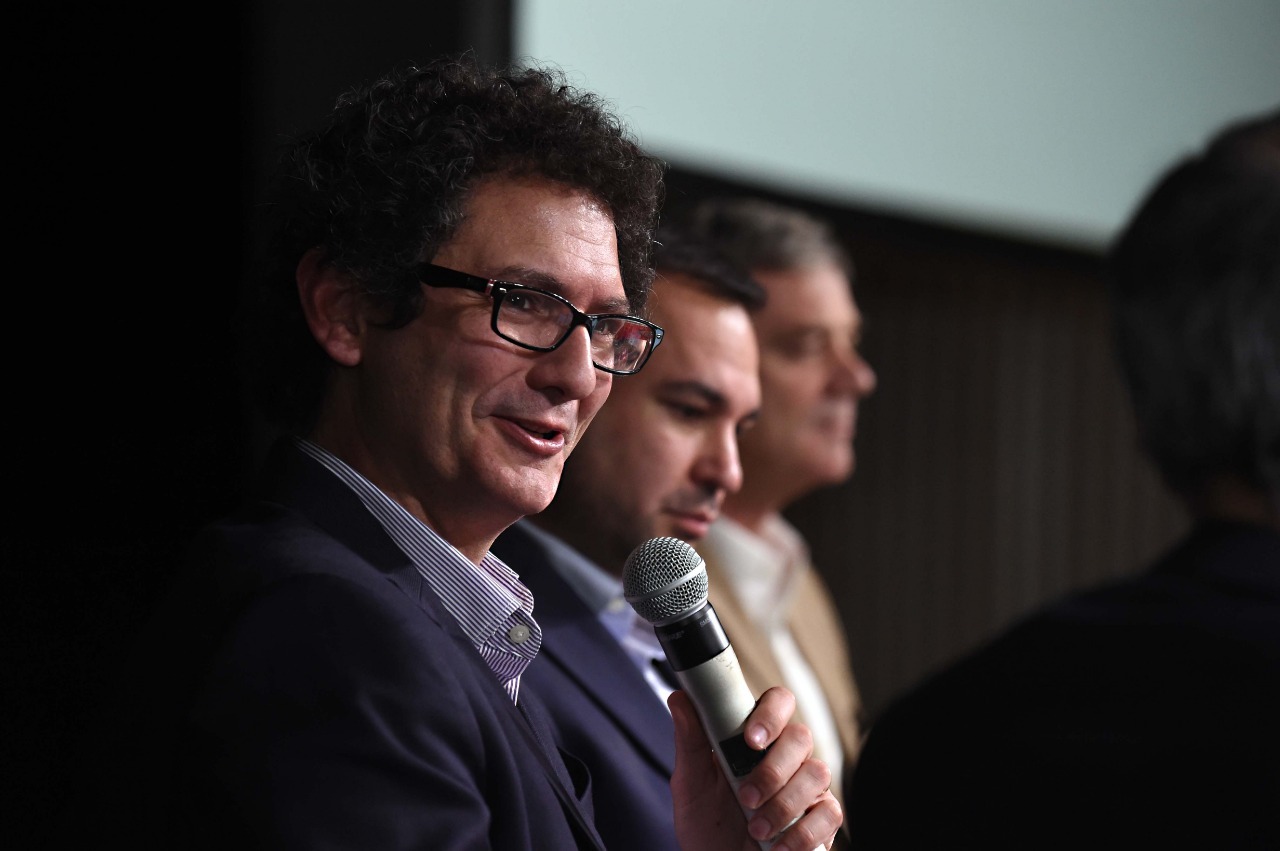Last week, the government of Argentina together with investor groups, farmer associations and entrepreneurs, hosted the country’s first AgTech Week.
The week consisted of presentations about the country’s venture capital industry, field trips to agricultural research institutions, an agtech investment forum, a startup pitch event, and culminated in the country’s first agtech forum at one of the country’s largest agricultural events organized by The Argentine Association of Producers in Direct Sowing (Aapresid). (Direct sowing means no-tillage, which 90% of Argentina’s farmers pursue.)
Argentina is emerging from a volatile decade under the presidency of Cristina Fernandez who saw off foreign investors with populist policies such as the nationalization of the country’s largest energy company. And the impact of her presidency is still being felt today with the emergence of corruption scandals surrounding her term resulting in the arrest of more than 12 executives and officials from her administration. Some media outlets argue these scandals are still contributing to the country’s ailing currency that fell to a record low on Monday on the back of large fiscal deficits, a high debt load and double-digit inflation.
But the government of President Mauricio Macri, who took office in 2015, is working hard to open up its markets and attract investment from overseas and the agriculture and venture capital industries are a key part of that policy.
Agtech investors are starting to take note of the potential for agtech in the country, with leading agtech accelerator The Yield Lab recently opening its Latin America headquarters in the country. The Yield Lab joins two other agtech-focused accelerators with operations in Argentina: Glocal Managers, which has received government backing, and NXTP Labs.
We caught up with Mariano Mayer, the national secretary for entrepreneurs and small & medium enterprises (SMEs) within the Ministry of Production, to find out how the country is trying to promote venture capital investment in the country and his hopes for the agtech sector in particular. Juan Pablo Tripodi, president of the Argentine Agency of Investments and International Trade, a key group in organizing the week’s events, also attended the interview.
Louisa Burwood-Taylor: How would you describe the venture capital industry in Argentina?
Mariano Mayer: It used to be very strong in the 1990s when everything started in the region. Then, for the past years, it has diminished a lot. Especially after the expropriation [renationalization] of YPF [Argentina’s largest energy firm] and that triggered problems with institutional investors. So, even when we had a very strong startup ecosystem including unicorns and everything, the venture capital industry was very low.
So, when we started after Macri won the election, there were only one or two accelerators, some angel investors, and almost no venture capital funds. We started first with macro regulation and then with regulations specifically about venture capital with the Entrepreneurship Law.
Juan Pablo Tripodi: The development of a national plan for entrepreneurship was part of our platform during the election.
Mariano: It was one of the most important parts of the economic development plan. So, we approved this Entrepreneurship Law that included a tax incentive for venture capital investment regulation, regulation of equity crowdfunding, and we established a fund of funds that we have been implementing and deploying in the past 10 months by investing in three early-stage funds for seed capital and grants. We have also invested in accelerators, providing match funding to what they raise elsewhere. We have selected 13 accelerators so far, and with three early-stage venture capital funds, our venture capital program has started.
LBT: How much funding does the government have to allocate under the Entrepreneurship Law?
Mayer: We are investing $12 million in three early-stage venture capital funds each and also $600k in 13 accelerators each. But between our investment and the private investment that we are leveraging, it will be at least $100 million.
We also have a tax incentive for investment, which is 0.02% of GDP. Angel investors can take advantage of this but so can big companies too as they start to look at entrepreneurs for open innovation. This is very typical all over the world, but it’s starting in Argentina, specifically in the agtech vertical.
So, companies like El Agua and Coca-Cola are starting to look at this and thinking of maybe establishing a venture capital fund or some sort of corporate venture capital fund. And, usually, for big corporations, a tax incentive is very important.
LBT: Are you trying to model the venture capital ecosystem here on any others globally, like in the US or someone mentioned Israel was an influencer?
Mayer: Yes. We have studied all the models of the world. But, typically it’s more inspired in Israel. Well, it’s a combination of Israel and the US, but our accelerators program is inspired by the incubator program of Israel. And, the fund of funds investment in venture capital funds is very similar to the US model. But, we are combining with a tax incentive, which is more similar to other countries like the UK or the US.
LBT: What about commercializing research? We met with Bioceres today [one of Argentina’s most successful agtech startup with an innovative business model to commercialize ag biotech research], and then yesterday we were at INTA (National Agricultural Technology Institute) seeing all of their research. But often getting research out of universities and research institutions is difficult. What is the Argentinian government doing there?
Mayer: As you said, this one of the big problems, so we tend to think about it as one of the opportunities. There are a lot of ideas and a lot of entrepreneurs willing to develop those ideas, but there was no place where they could work together. So, that’s one of the things that we have been doing the last year and a half: developing this ecosystem where we have big companies, we have entrepreneurs, we have academia, scientists, but also investment funds and VCs. We are seated all together at the same table discussing once a month the problems of the sector and what we can do to develop it in a faster way.
Tripodi: I think that that’s going to help a lot. People started off with a lot of doubts, but after a few months of working on this, we have a lot more people who are joining this project. We are doing these events in Buenos Aires, Rosario, and Cordoba; three places where there is a lot to do, and there’s a lot of talent that is willing to focus in this sector. It’s big. As Mariano said, we started only two and a half years ago, so there’s a lot more that we need to do. But we think that we are going in the right direction by following the example of different countries, what they have been doing in the past, and that sets a really good example for us.
LBT: How does agtech compare to other sectors that you’re supporting, venture capital-wise?
Mayer: Well, we think it has a lot of potential, and we think that Argentina could be at the forefront. What we are trying is for those separate worlds to talk, to combine. We have a very good startup ecosystem, mainly digital and software companies. We have the unicorns, and then we have the farm that has a tradition of innovation and technology in Argentina. Our farmers were always avant-garde in the world in that sense, but now there’s a new challenge with exponential technologies and the digital world, so we are working on two things. First, for the farm to use all these new technologies, which means some cultural change on the farm, but secondly, we also think that we can be producers of technology; to export not only food and products but also technology, talent, and knowledge-based services.
Tripodi: If Argentina’s first exporting sector is agribusiness, mainly soybeans, and cereal, the second one is knowledge-based services. A combination of those two things is something that makes us think there’s a huge opportunity in agtech. Maybe it’s not the very biggest at this moment, but it has the potential to be the biggest, most important sector.
LBT: How important is foreign capital for the agtech industry here?
Mayer: Foreign capital is important for everything! We need $30 billion of investment per year. Of course, we think that this is a very interesting sector and that’s why foreign venture capitalists are coming to invest in Argentina. Our entrepreneurs in other sectors are well known, but the specific investors and companies from the agtech world are very excited about Argentina entering this sector ecosystem because they know that we have potential. That’s why AgTech Week is very important.
Tripodi: It’s our job to promote Argentina as a place where agtech is going to be expanding in an exponential way in the next couple of months by organizing the kind of events happening here at AgTech Week, as well as participating in different events globally. We were last year in St. Louis, and we are going again this year because we think St. Louis and the AgInnovation Showcase is one of the places where inspiration can be found.






